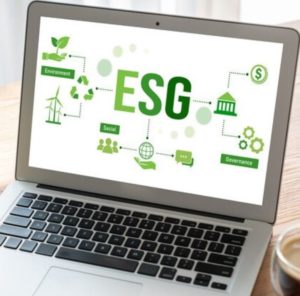 While financial results and solid fundamentals remain vital benchmarks of business success, many companies today are embracing environmental, social and governance (ESG) issues as key elements in their strategic plans.
While financial results and solid fundamentals remain vital benchmarks of business success, many companies today are embracing environmental, social and governance (ESG) issues as key elements in their strategic plans.
But what is ESG and why has it taken a prominent place at the top of corporate agendas, from large multinational corporations to locally owned companies? Moreover, in a free-market system where dollars and cents are the traditional hallmarks of success, what will a corporate world redefined by social values look like?
ESG is a broad values-based set of practices that is redefining business management and investing. For publicly traded companies or those subject to regulation, adherence to ESG practices is increasingly becoming imperative.
Impetus for ESG Trend
To understand why the corporate world is embracing ESG practices, one must understand where the impetus comes from. In essence, ESG has grown from the grassroots up. Some 76% of consumers say they would end a relationship with a company that they knew degraded the environment or damaged the community. But it doesn’t begin and end with consumers. Corporate boards, industry associations and regulatory agencies have gotten on board, pressuring companies to look beyond the dollars and cents in framing their success.
We live in a rapidly changing and often frightening world. Climate change is transforming large swaths of the national landscape and impacting food production. We just experienced a global pandemic that is still making people sick. The social and economic exclusion of marginalized groups stubbornly persists. And political extremism – something we used to associate with volatile foreign countries – has infected us here at home.
As governments have proven incapable of addressing these large societal issues, private industry has responded by shaping a new discussion around the role of corporate activism. Adoption of ESG agendas is driven in large part by pressure from consumers, investors and regulators, moving business leaders to address challenges like climate change and racial inequity with data, metrics and goals. Essentially, employees, consumers, governing bodies and global communities are pushing organizations to do business differently.
To be sure, businesses want to remain competitive and are compelled, in many instances, by regulations and new industry standards. But the adoption of ESG frameworks is largely voluntary, especially for smaller and medium-sized businesses.
Eye-opening Process
We have implemented ESG practices as an internal strategy at HW&Co. to express the firm’s values. The process is ongoing, and it has been eye-opening, but we believe it positions us to help clients adapt to a changing marketplace. As we help some of our clients embrace ESG values in their companies, we see that the adaptability of ESG governance enables them to adopt new practices in authentic ways to their organizations.
Sometimes unforeseen world events intervene and either stop a trend in its tracks – or accelerate it. In the case of the ESG trend, the COVID-19 pandemic seems to have accelerated awareness and adoption of new business practices.
HW&Co.’s ESG Journey
Like many companies, ours was quickly ushered into the “new normal” when the COVID-19 pandemic started waning. Empowering most of our employees to work a hybrid schedule, coming to the office a couple of days a week and working from home the rest of the time, was an easy decision when we realized how it would improve their lives. But we also realized it would reduce our firm’s carbon footprint by taking hundreds of cars off the roads several days a week.
The process of adopting ESG practices is a journey, not an event. It requires recognition of the firm’s values and ongoing discussion of business practices that express those values in a meaningful way.
At HW&Co., we take seriously our responsibility toward environmental, social and corporate governance considerations when conducting business affairs. We are committed to fostering an inclusive economy and sustainable growth while serving our clients, championing our employees and contributing to our communities.
The challenge for many companies is to identify the environmental, social and governance measures that will have the most meaningful impact for their organizations, and then quantify the results. You can pat yourself on the back for allowing 80% of your workforce to work remotely, but how do you quantify the results? How many tons of carbon dioxide does remote work save because your employees are no longer driving to the office? Are your employee retention numbers up as a result of remote schedules, and if so, what is the social value of that and how can it be measured?
We have come a long way as a society in our embrace of ESG values in the business marketplace, but undoubtedly many are not yet convinced of the benefits. Their employees, consumers, and board members will likely convince them eventually. In the meantime, those who are already on the ESG path – like HW&Co. – still have a journey ahead of them as they define deeper, more meaningful ways to apply these values in their companies.
I will admit, it took a while for me to jump on board. I’m a numbers guy, after all. But I have seen firsthand the value and benefits of embracing business practices that improve the environment, that show awareness and sensitivity to social issues, and ensure the highest degree of integrity in the governance of a business.
We’re on a good path, and we’re not looking back.

President & CEO
brandon.miller@hwco.cpa




